Sucre restaurant review: a slice of Buenos Aires in the heart of Soho
Open fire cooking and seasonal ingredients are at the centre of this newly opened Argentine eatery
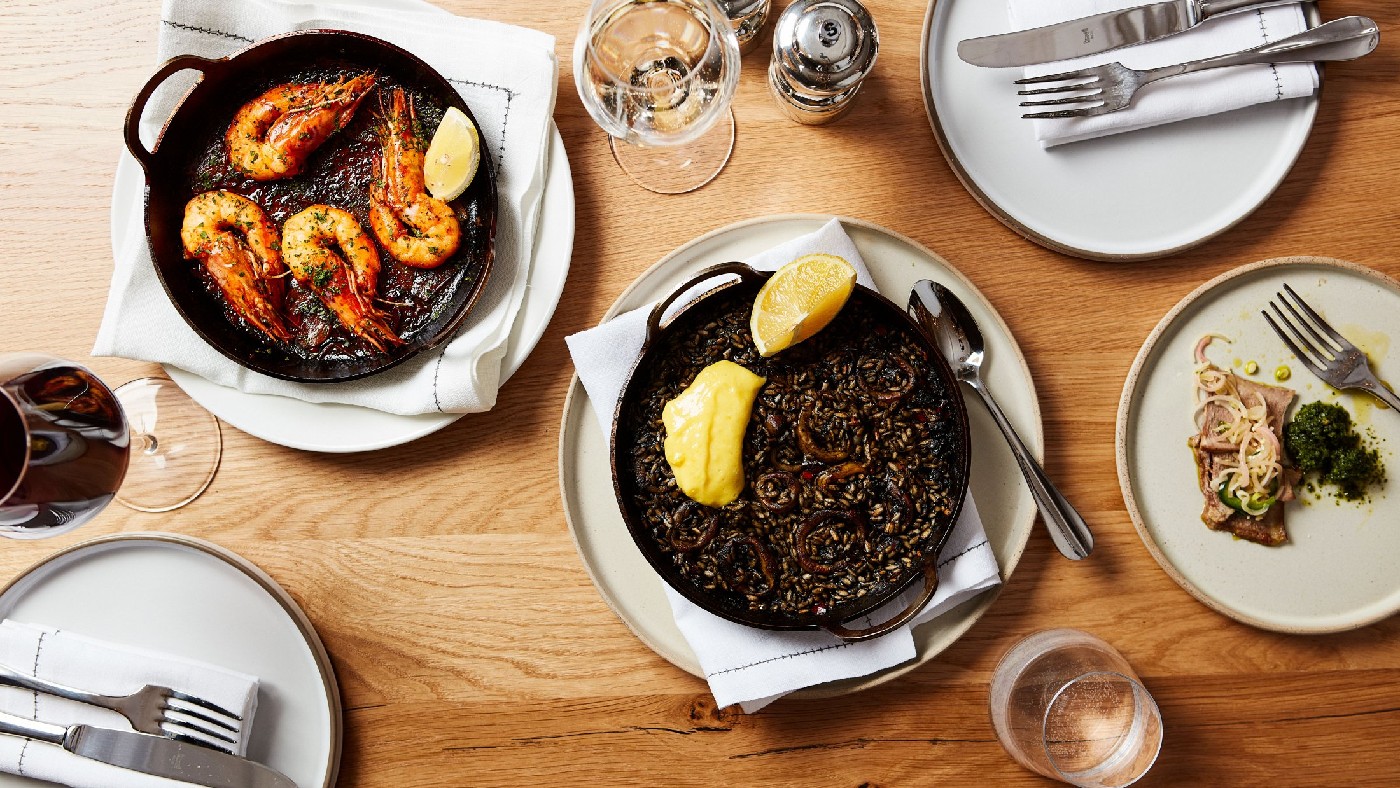
A free daily email with the biggest news stories of the day – and the best features from TheWeek.com
You are now subscribed
Your newsletter sign-up was successful
Argentina may remain stuck on the red list, but an exciting new restaurant is offering Londoners a slice of authentic Buenos Aires right in the heart of Soho.
Two decades after opening the original Sucre in the Argentine capital, chef Fernando Trocca (formerly of high-end UK steak chain Gaucho) and bartender Renato “Tato” Giovannon have launched a London instalment of their acclaimed eatery.
As Sucre is widely considered one of Buenos Aires’ best food spots and has twice been featured in Latin America’s 50 Best Restaurants, there has been considerable buzz around Trocca and Tato’s new joint since it opened in July.
The Week
Escape your echo chamber. Get the facts behind the news, plus analysis from multiple perspectives.

Sign up for The Week's Free Newsletters
From our morning news briefing to a weekly Good News Newsletter, get the best of The Week delivered directly to your inbox.
From our morning news briefing to a weekly Good News Newsletter, get the best of The Week delivered directly to your inbox.
The space
Sucre and its new cocktail bar, Alma, occupy a 310-year-old building just down the road from luxury department store Liberty and a stone’s throw from Oxford Circus underground station. After entering the main door, you find yourself in a swanky but dimly lit reception area which doesn’t quite prepare you for the majesty of the dining room it leads on to.
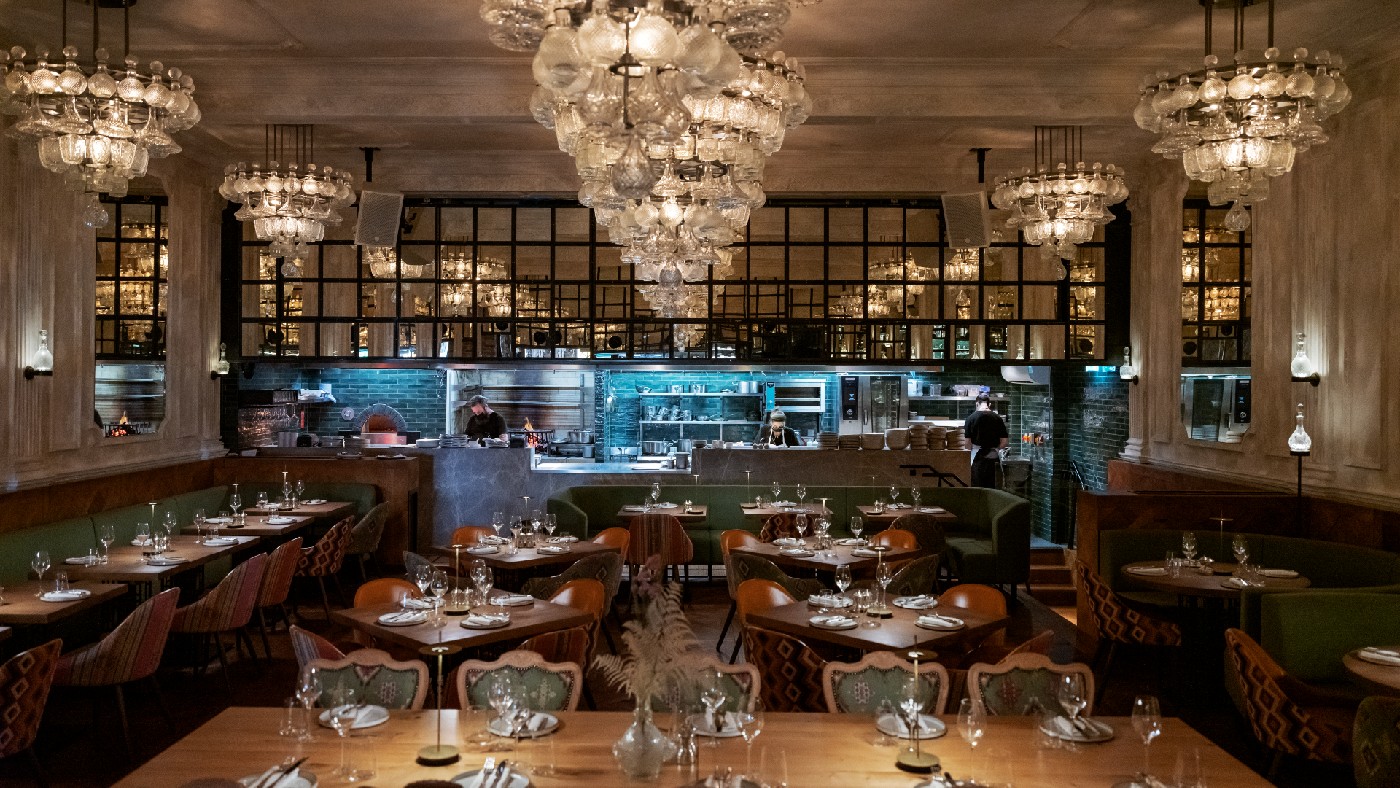
The restaurant - which was designed by Japanese architect Noriyoshi Muramatsu - has no natural light but you’re barely aware of this thanks to its extraordinarily high ceilings (it was formerly the London College of Music’s concert hall) and stunning chandeliers which are made up of more than a thousand cut-glass decanters.
An open kitchen at the back of the room, which features a wood oven and enormous “parilla” (grill), give the cavernous space a homely, relaxed feel.
A free daily email with the biggest news stories of the day – and the best features from TheWeek.com
Open fire cooking is at the heart of Sucre’s concept, along with the use of seasonal ingredients (the menu changes regularly). Dishes are cooked over charcoal, Argie-style, using embers rather than live flames. “We are open-minded about the flavours, ingredients and influences we work with but less open-minded about how they should be treated on fire” say Trocca and Tato, who are long-term friends.
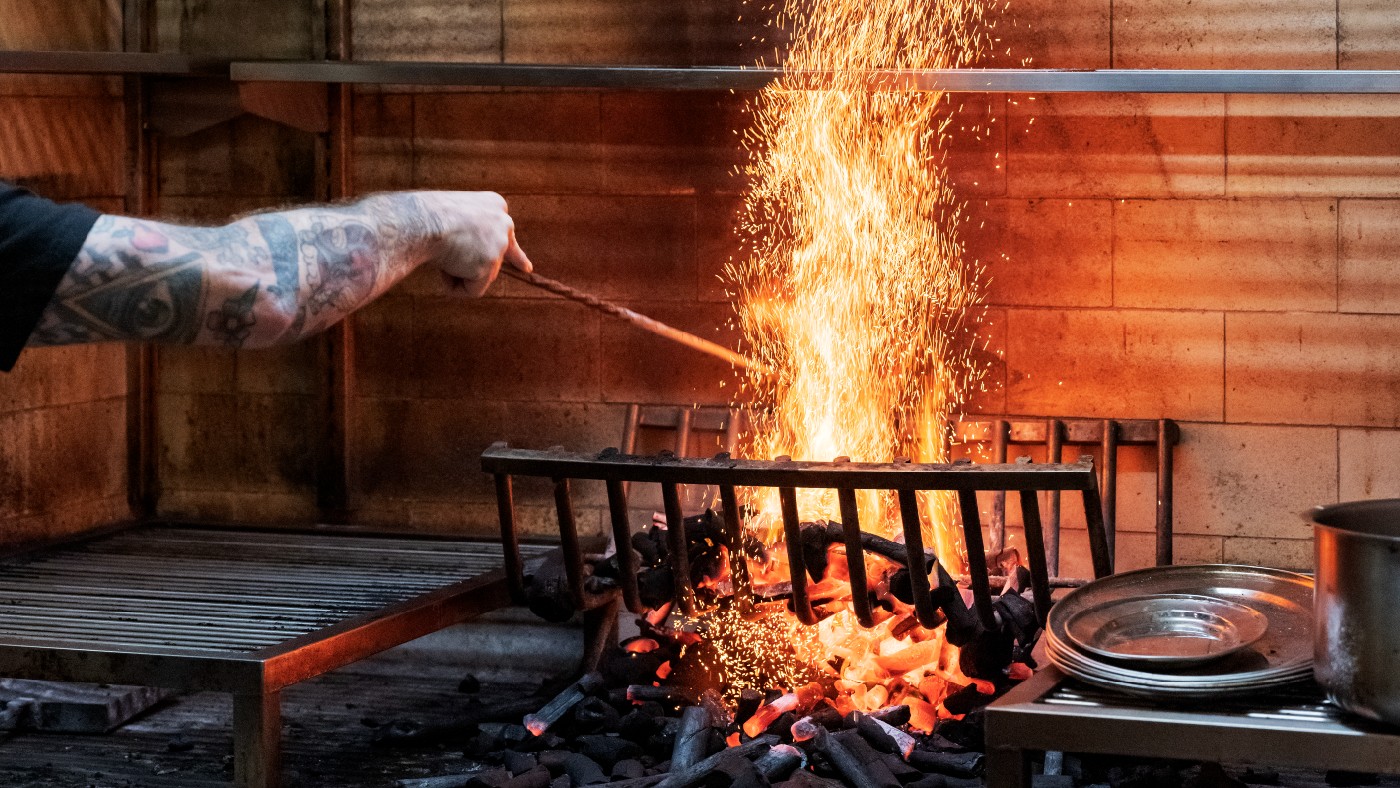
The food
Sucre’s à la carte food menu begins with a small selection of reasonably-priced empanadas (what else would you expect from an Argentinian restaurant?) and chorizo criollo, another traditional dish.
A mixture of vegetarian, pescatarian and meaty “small plates” act as starters; my dining companion and I shared a Dorset crab “tostada” (toasted tortilla) which came with avocado and a deliciously smokey tatemada salsa, and an Insta-friendly salad made of golden and deep purple beetroot, cumin, yoghurt and orange.
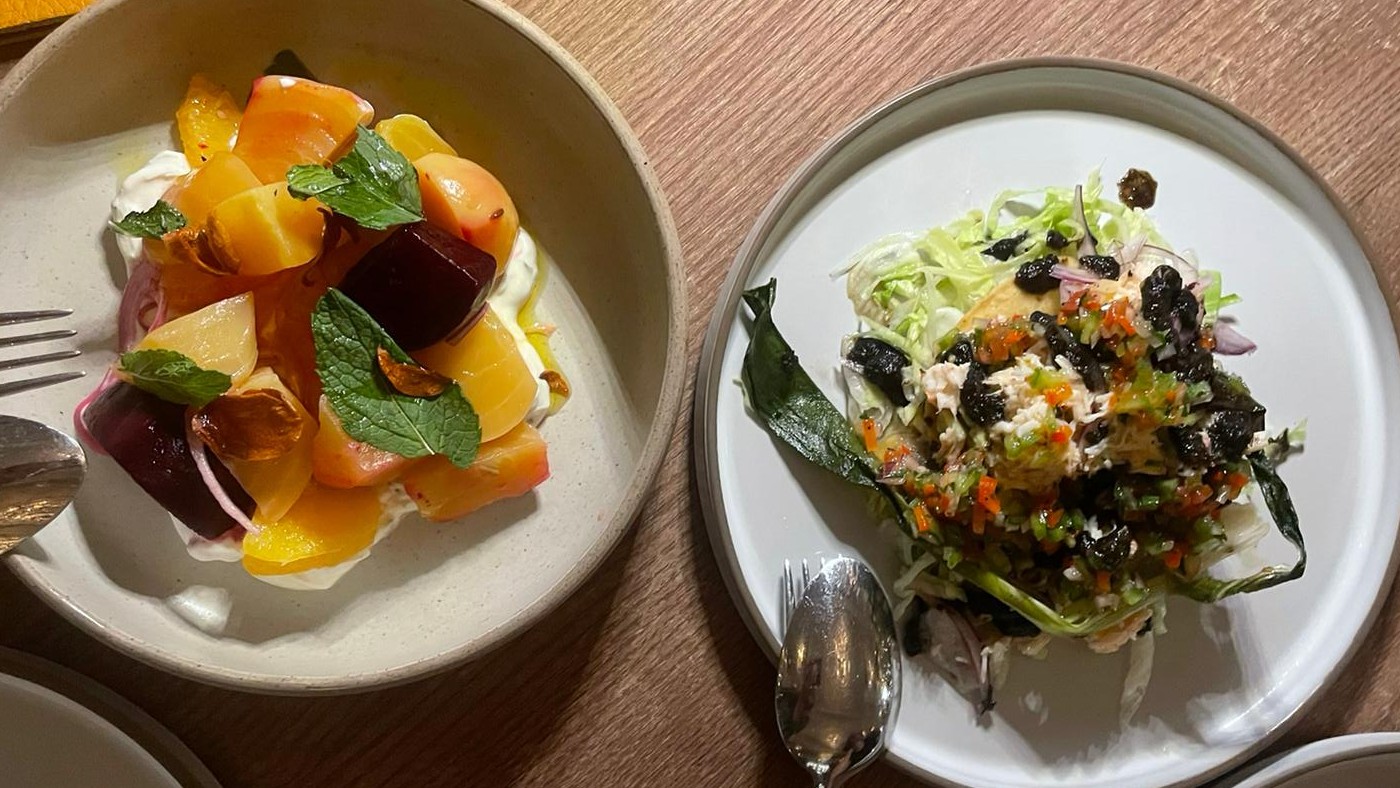
Mains are split into two sections: fire and stove. Wanting to try one dish from each, we opted for the monkfish tail (which was coated in an umami seafood sauce and served with black beans) and Sucre’s speciality: veal osso bucco (slow-braised veal shanks) which sat upon a vibrant, melt-in-the-mouth saffron risotto. Our side of tomatoes, capers and onions was simple but its crisp tanginess perfectly offset the rich flavours of the monkfish and veal.
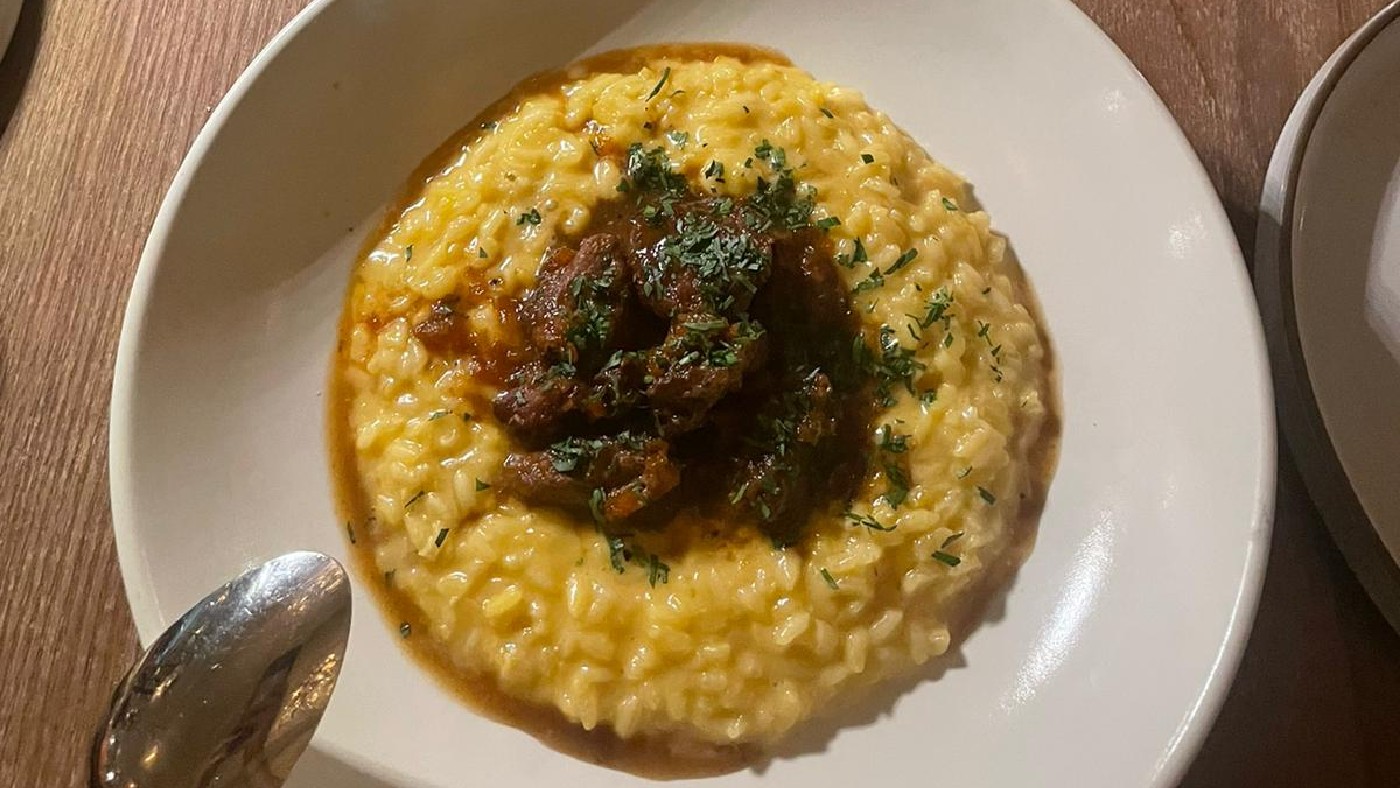
Guests may be surprised to find just one steak option on the menu (when we visited, it was an 800g bone-in ribeye to share) - but this feels like a conscious decision by Trocca to widen Londoners’ perception of his country’s diverse culinary scene.
Dessert helped Sucre live up to its sweet namesake; we sampled a citrusy pavlova made with fig leaf and a decadent dulce de leche fondant. Neither were quite as stand-out as our mains, but were pleasant enough to end our experience with.
The drinks
We enjoyed browsing through the creative cocktail list, which features charming illustrations, before settling on a Membrillo Bellini (sparkling wine, fig leaf liquor, quince and wild honey) and Sucre’s expert take on a classic Bloody Mary which was made with fresh tomatoes and red peppers cooked on the grill.
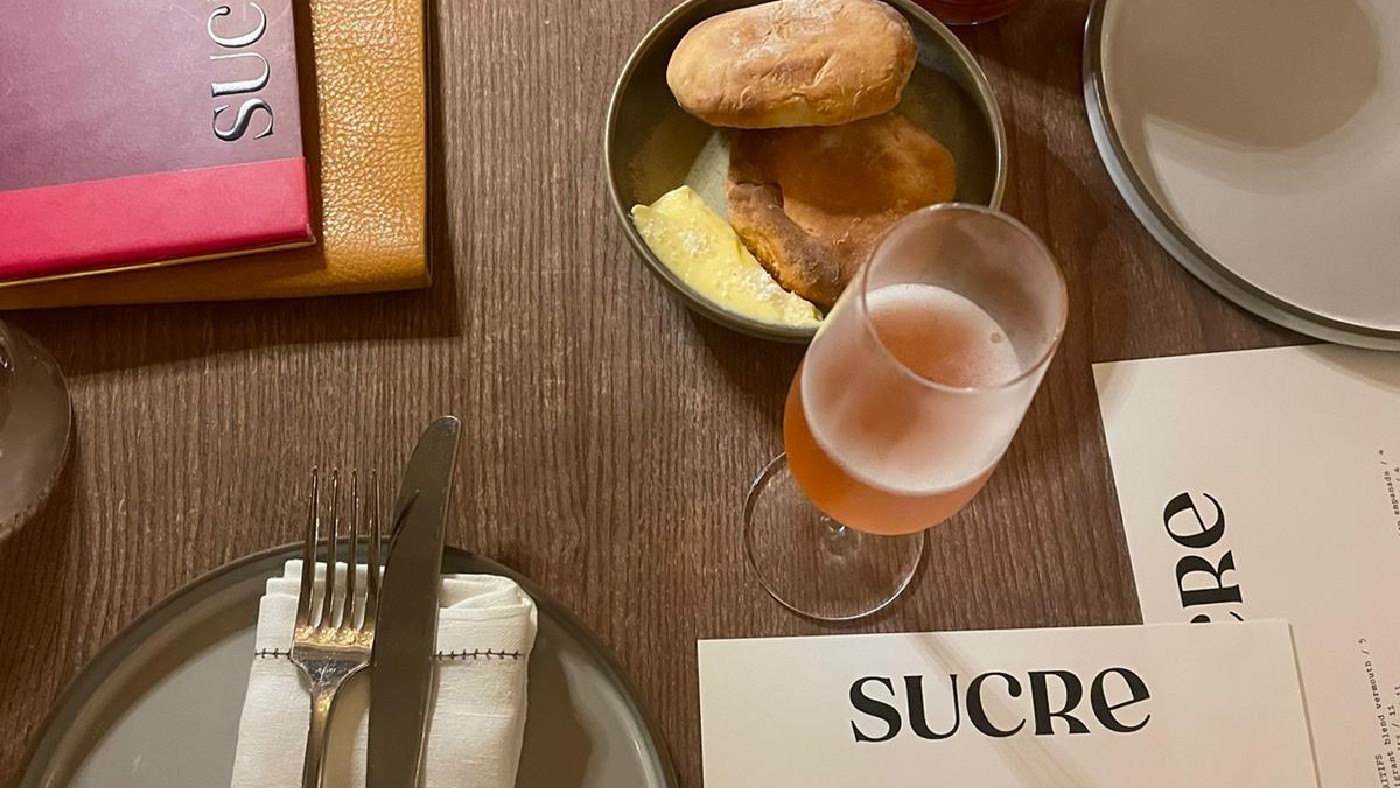
Our attentive waiter helped us choose a wine that would go well with our food choices (an in-house sommelier is also on hand for advice). He suggested a crisp Argentinian La Cayetana Criolla Blanca which contained notes of honey, apple and citrus, and was a perfect accompaniment to our meal.
A wider selection of drinks can be found in the basement bar, Alma. There, cocktails are mainly served on underlit neon coasters, contrasting with the space’s dark, moody interior.
The verdict
The restaurant opened less than three months ago but you wouldn’t know it - it was almost at full capacity when I visited and the service was impeccable.
With all of mainland South America firmly on the red list, the prospect of visiting Argentina is out of the question - at least for the time being. With its explosive, authentic flavours, Sucre is the perfect spot for some alternative tastebud travelling, no passport required.
Sucre, 47 Great Marlborough Street, London W1F 7JP; sucrerestaurant.com
Kate Samuelson is The Week's former newsletter editor. She was also a regular guest on award-winning podcast The Week Unwrapped. Kate's career as a journalist began on the MailOnline graduate training scheme, which involved stints as a reporter at the South West News Service's office in Cambridge and the Liverpool Echo. She moved from MailOnline to Time magazine's satellite office in London, where she covered current affairs and culture for both the print mag and website. Before joining The Week, Kate worked at ActionAid UK, where she led the planning and delivery of all content gathering trips, from Bangladesh to Brazil. She is passionate about women's rights and using her skills as a journalist to highlight underrepresented communities. Alongside her staff roles, Kate has written for various magazines and newspapers including Stylist, Metro.co.uk, The Guardian and the i news site. She is also the founder and editor of Cheapskate London, an award-winning weekly newsletter that curates the best free events with the aim of making the capital more accessible.
-
 6 of the world’s most accessible destinations
6 of the world’s most accessible destinationsThe Week Recommends Experience all of Berlin, Singapore and Sydney
-
 How the FCC’s ‘equal time’ rule works
How the FCC’s ‘equal time’ rule worksIn the Spotlight The law is at the heart of the Colbert-CBS conflict
-
 What is the endgame in the DHS shutdown?
What is the endgame in the DHS shutdown?Today’s Big Question Democrats want to rein in ICE’s immigration crackdown
-
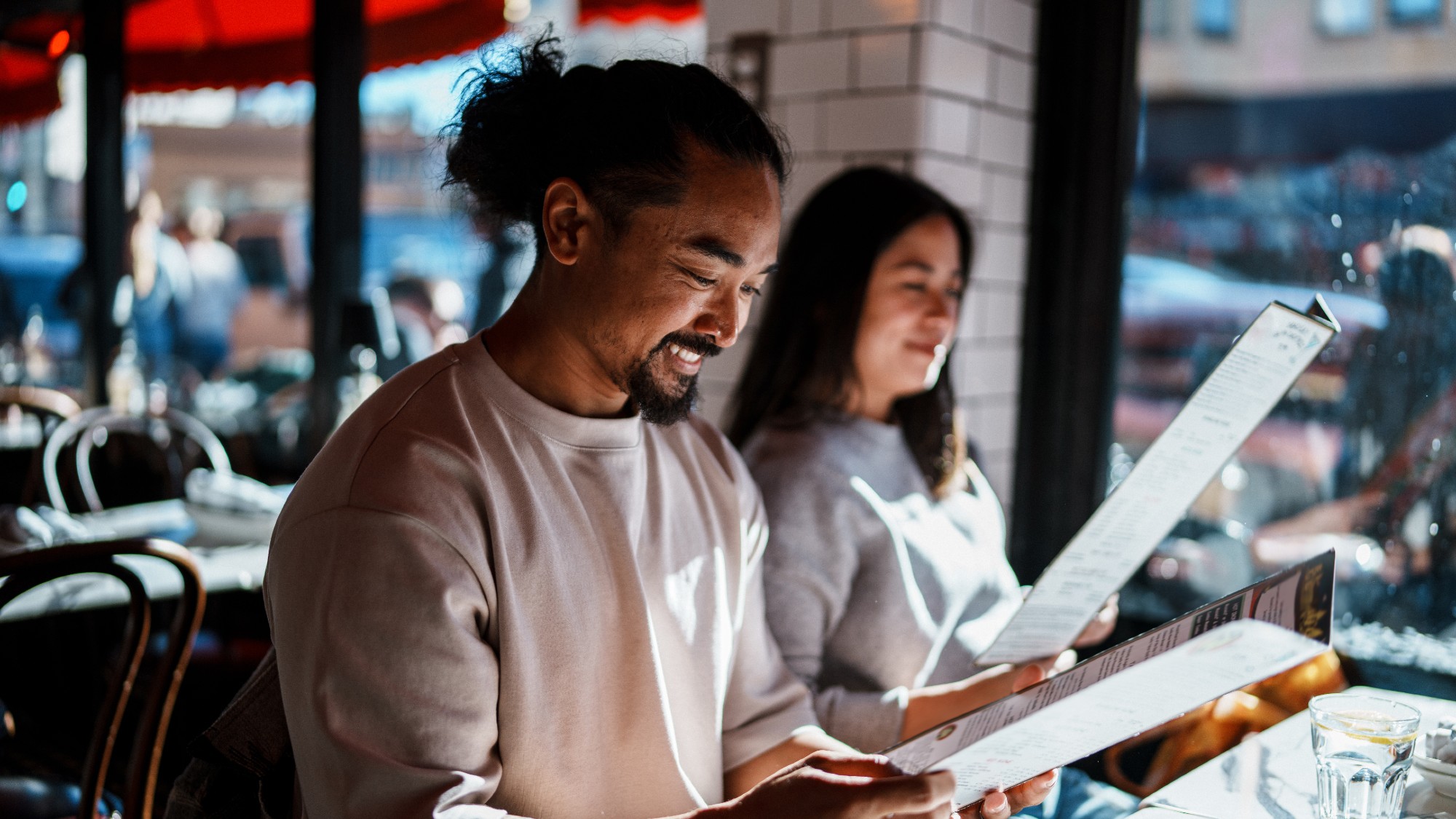 8 restaurants that are exactly what you need this winter
8 restaurants that are exactly what you need this winterThe Week Recommends Old standards and exciting newcomers alike
-
 The vast horizons of the Puna de Atacama
The vast horizons of the Puna de AtacamaThe Week Recommends The ‘dramatic and surreal’ landscape features volcanoes, fumaroles and salt flats
-
 Critics’ choice: Watering holes for gourmands
Critics’ choice: Watering holes for gourmandsFeature An endless selection of Mexican spirits, a Dublin-inspired bar, and an upscale Baltimore pub
-
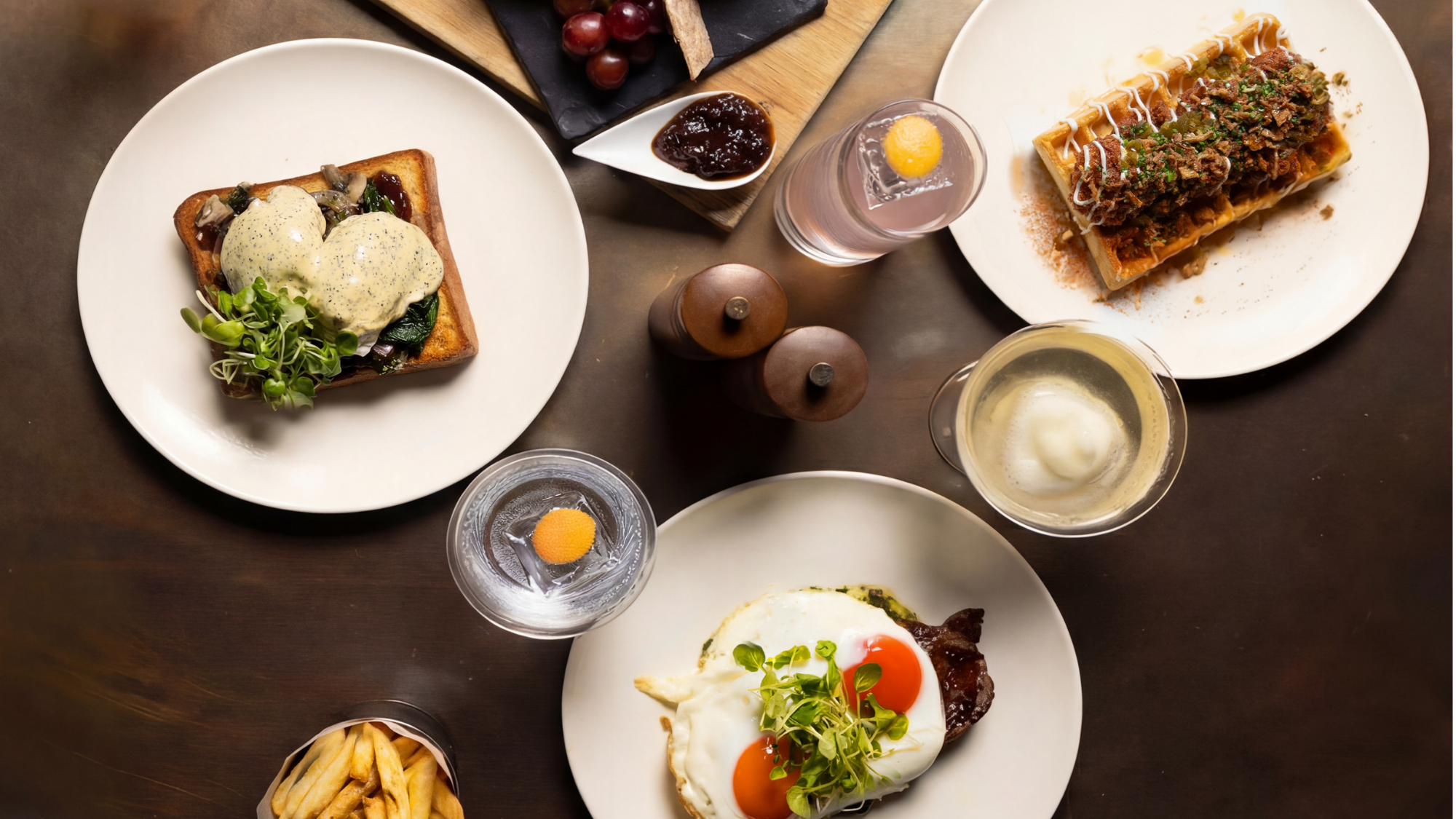 London’s best breakfasts and brunches
London’s best breakfasts and brunchesThe Week Recommends However you like your eggs in the morning, these memorable restaurants have you covered
-
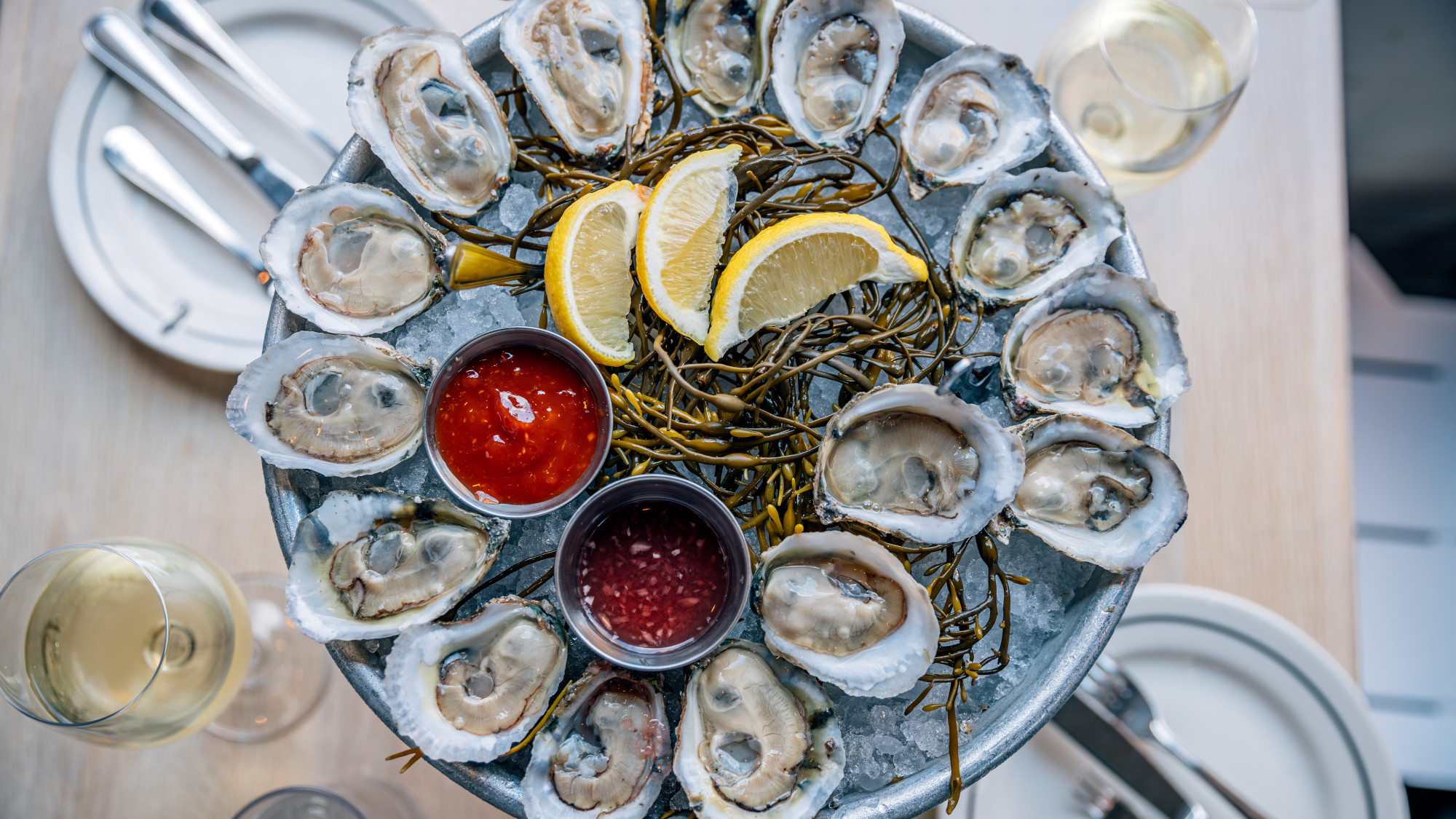 Critics’ choice: Seafood in the spotlight
Critics’ choice: Seafood in the spotlightFeature An experimental chef, a newspaper-worthy newcomer, and a dining titan’s fresh spin-off
-
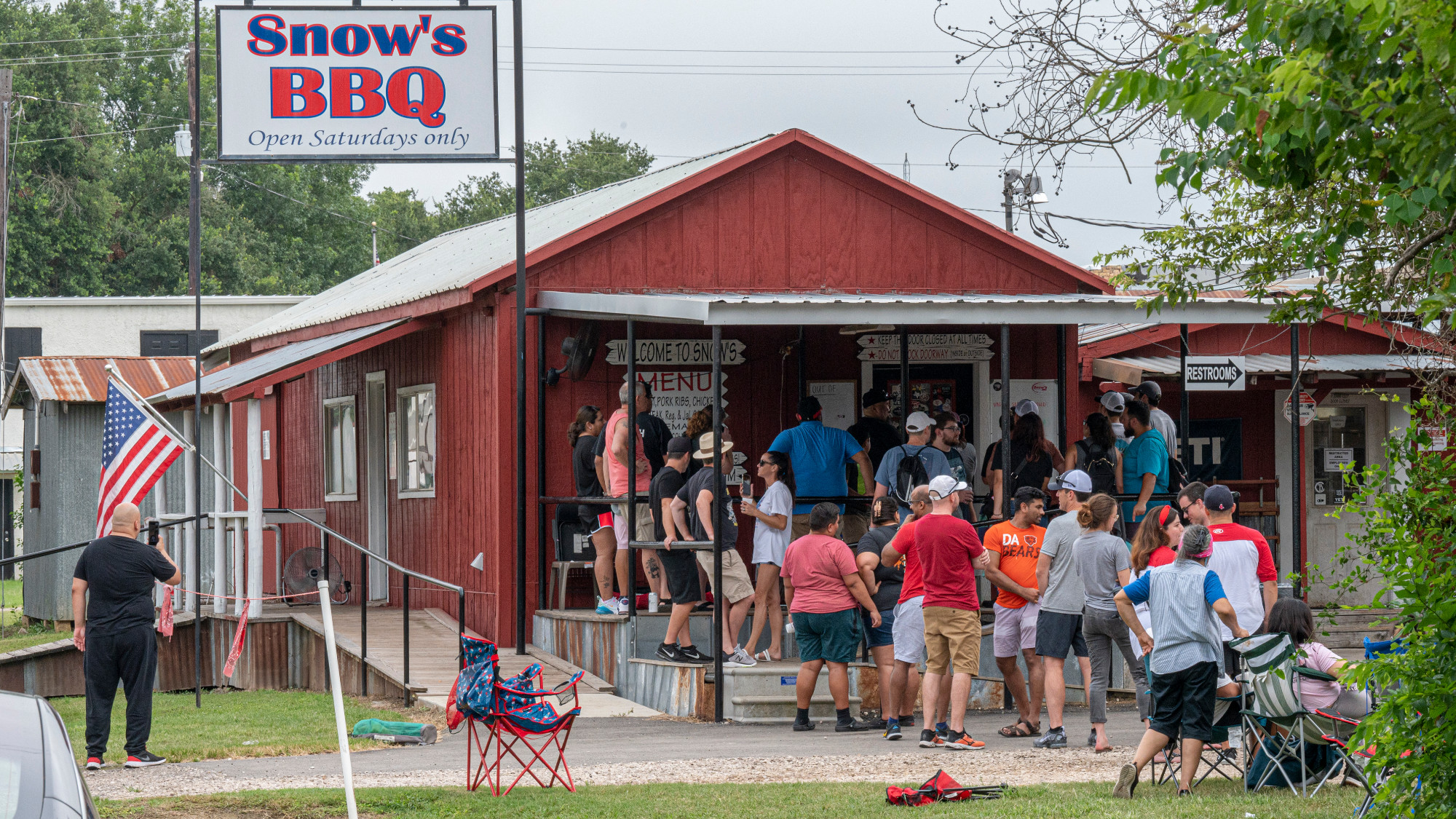 Southern barbecue: This year’s top three
Southern barbecue: This year’s top threeFeature A weekend-only restaurant, a 90-year-old pitmaster, and more
-
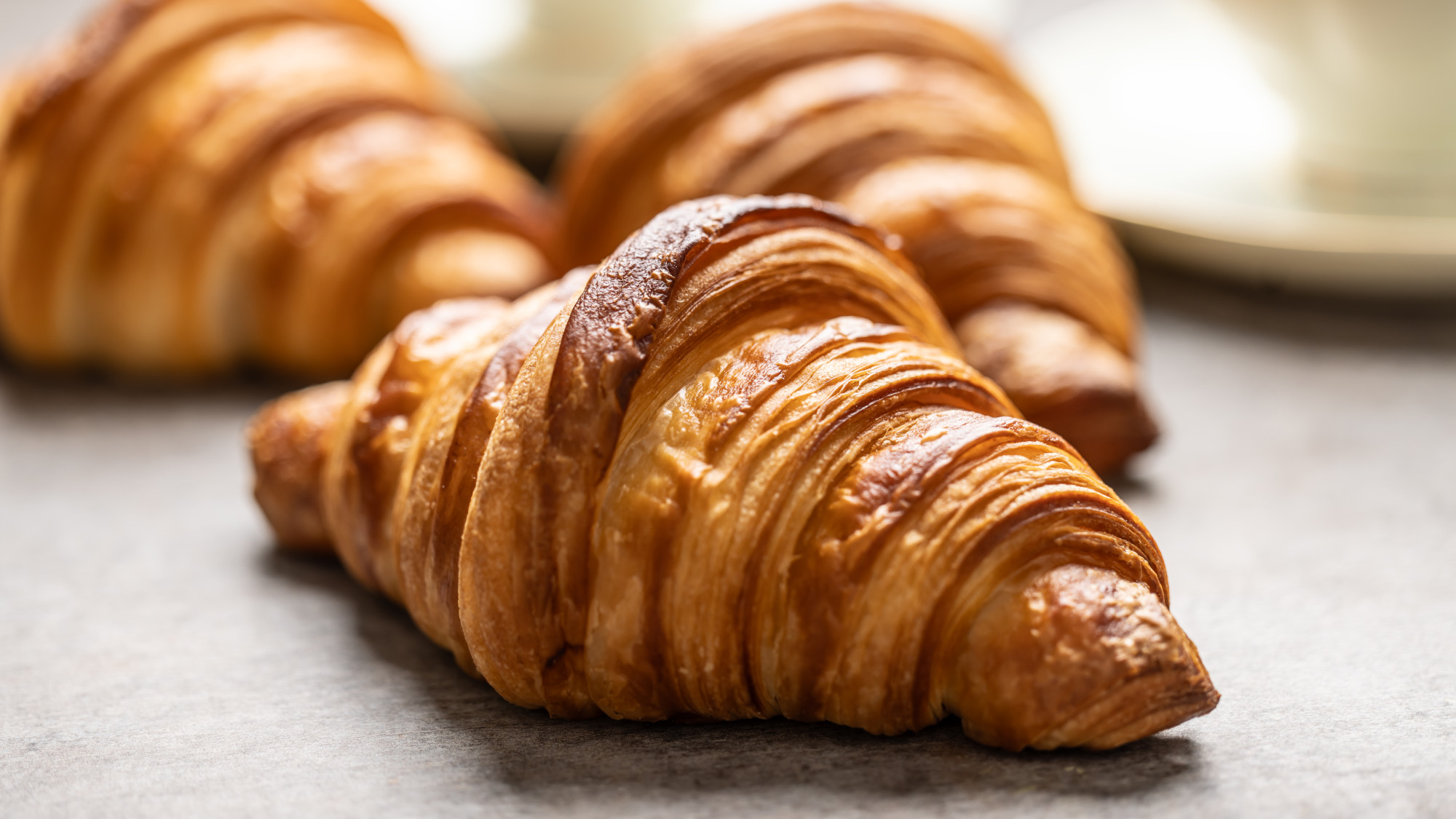 Critics’ choice: Celebrating rare Asian cuisines
Critics’ choice: Celebrating rare Asian cuisinesFeature The 2025 Restaurant of the Year, a Hmong culinary tribute, and an Uyghur feast
-
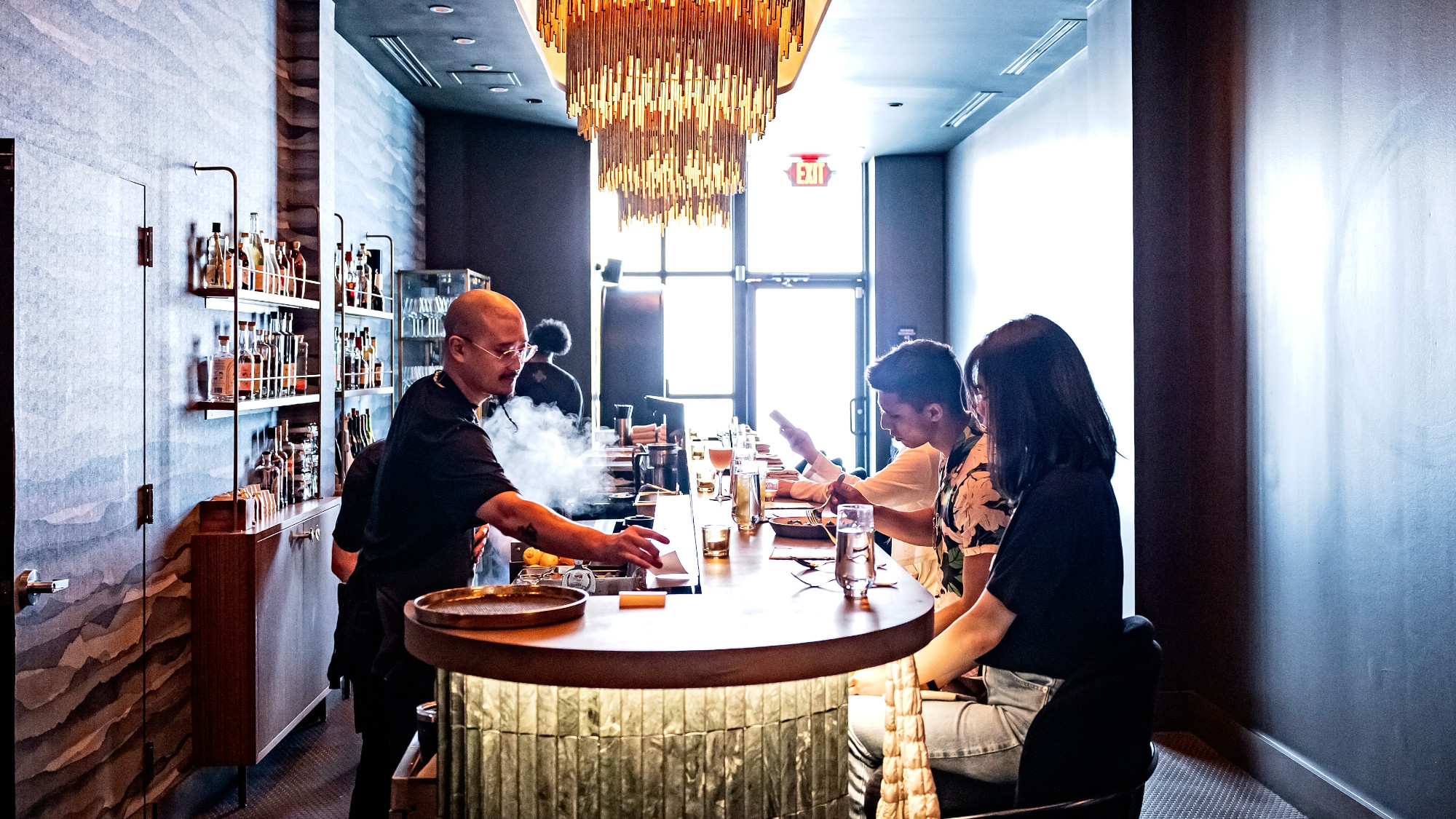 Critics’ choice: Three small yet magical Korean restaurants
Critics’ choice: Three small yet magical Korean restaurantsFeature A chef creates magic from scallops, a restaurant’s no-waste ethos, and more